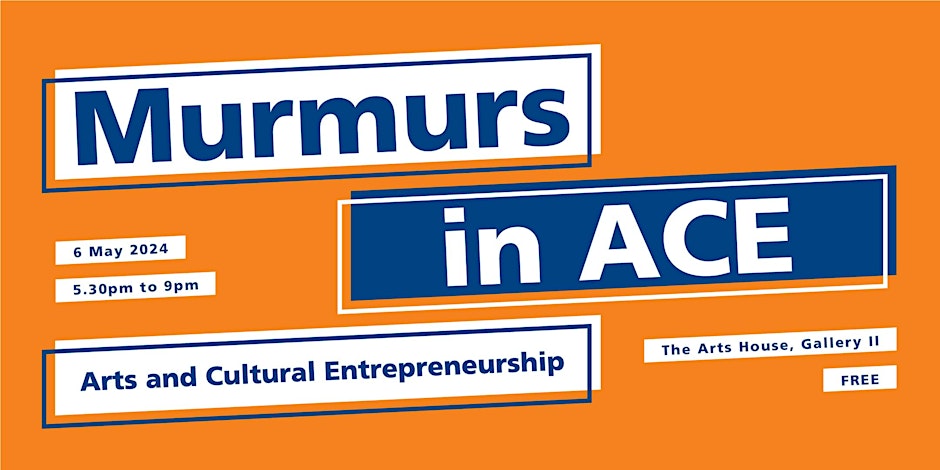
News & Stories
Latest News & Stories
Article Contributed by Dr Rimi Khan, Senior Lecturer, Department of Communications And New Media, Faculty of Arts and Social Science
In a world teeming with over 580 million entrepreneurs, the image of an entrepreneur has evolved beyond stereotypes. The landscape of entrepreneurship encompasses a diverse array of individuals, communities and ventures, each contributing uniquely to global economies. Similarly, the economic impact of the arts and cultural sectors has gained recognition, projected to reach to 40% of the global creative economy by 2030 according to Deloitte.
At the core, both artists and entrepreneurs share a profound commitment to creativity and innovation. They possess an innate ability to generate novel ideas, challenge norms, and create value, whether in the form of wealth creation or societal impact. Philip Drucker's definition of innovation as the endowment of resources with new capacities resonates deeply in both realms, highlighting the transformative power of creative thinking[1] . Understanding innovation as ‘new combinations of knowledge’[2], also helps us to grasp the importance of multi-disciplinary approaches and collaboration.
The dichotomy between artists and entrepreneurs has long been entrenched in societal perceptions. Artists are often portrayed as embodying a bohemian lifestyle, driven by creativity but living in poverty. In contrast, entrepreneurs are heralded as agents of innovation and economic growth. However, beyond these surface distinctions lie profound similarities.
Entrepreneurship is inherently intertwined with risk-taking and an adventurous spirit. However, the perceived risks of venturing into uncharted territories are often mitigated through community-building and collaboration. Investing in a supportive creative ecosystem not only provides a safety net for aspiring arts entrepreneurs but also fosters a culture of mutual support.
The journey of a creative entrepreneur is rife with challenges and tensions, mirroring the inherent risks and uncertainties faced by traditional entrepreneurs. There is no guarantee that a new artwork, product, exhibition, or idea will resonate with audiences and markets. Many enterprises fail, and the most successful or popular ones are not necessarily the most transformative. The concept of ‘radical innovation’ exemplifies how novel ideas can disrupt cultural markets, ushering in new narratives and societal paradigms.[3] Such radical ideas have the potential to create social change. In recent decades, the mainstream acceptance of hip hop in the music industry serves as a testament to how cultural shifts catalysed by creative endeavours can redefine norms and foster inclusivity.
Entrepreneurship extends beyond conventional notions epitomised by figures like Steve Jobs or Elon Musk. Inclusive and diverse imaginaries of entrepreneurship are emerging, emphasising its role in sustainable development, social inclusion, and ethical business practices.
Jo Tan's journey from lawyer to actor and playwright exemplifies the diverse pathways within creative entrepreneurship. Her story reflects a commitment to leveraging creative skills for social, cultural, and economic impact, a core tenet of the Master of Arts (Arts and Cultural Entrepreneurship) programme at NUS.
The MA (ACE) programme at NUS bridges the gap between creativity and entrepreneurship, equipping students with the skills to drive innovation and navigate success in cultural markets. By fostering a deep understanding of industry dynamics, policy frameworks, and leadership approaches, the programme empowers aspiring creative entrepreneurs to realise their visions and contribute meaningfully to the evolving cultural landscape.
Murmurs in Arts and Cultural Entrepreneurship
The Murmurs in Arts and Cultural Entrepreneurship event on Monday, 6 May 2024, embodies the ethos of inclusive and diverse imaginaries of entrepreneurship, delving into critical questions about defining success in creative industries and fostering inclusive, intercultural workspaces.
The event promises an enriching evening of conversations with industry practitioners and thought leaders from diverse creative domains. Speakers such as Oniatta Effendi, founder of Baju by Oniatta, and Shridar Mani, co-artistic director of The Opera People, offer invaluable insights into navigating the intersection of creativity and entrepreneurship. Their experiences underscore the multi-faceted nature of creative careers, emphasising the importance of balancing artistic vision with market and audience appeal.
Join us at Murmurs in Arts and Cultural Entrepreneurship, for an inspiring exploration of creativity, innovation, and the transformative power of arts entrepreneurship. Together, we can reimagine the boundaries of entrepreneurship, harnessing the boundless potential of creativity to shape a more vibrant and inclusive future.
Register for the event here: Murmurs in ACE (Arts and Cultural Entrepreneurship) Tickets, Mon, May 6, 2024 at 5:30 PM | Eventbrite
[1] Drucker, P. (1985). Purposeful Innovation and the Seven Sources for Innovative Opportunity. Innovation and Entrepreneurship: practice and principles. London, Routledge. 36-44.
[2] Woronkowicz, J. (2021). Arts, entrepreneurship, and innovation. Journal of Cultural Economics.45(4), 519-526.
[3] Khaire, M. (2017). The business of culture. Culture and commerce: The value of entrepreneurship in creative industries.Redwood, Stanford University Press. 3-26.
Videos


